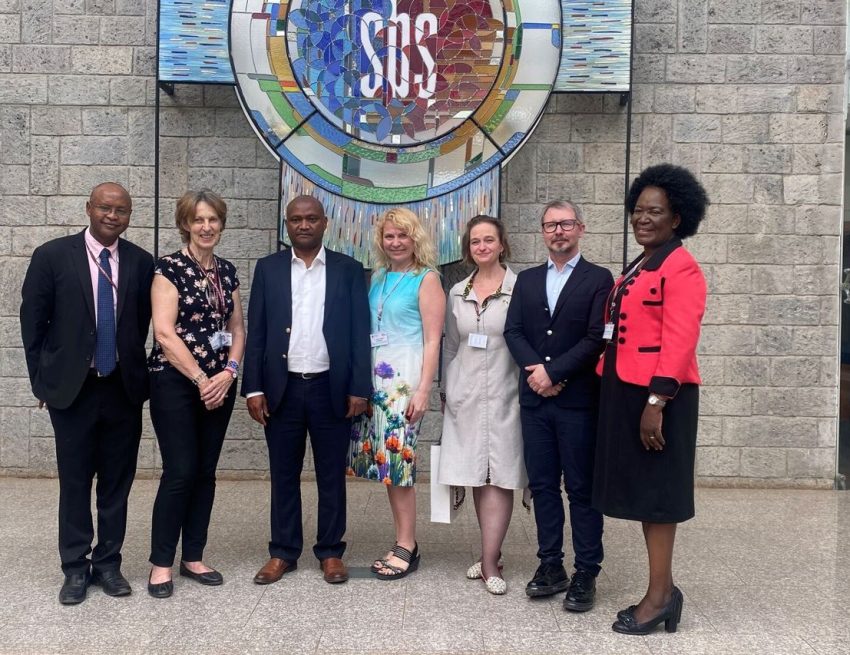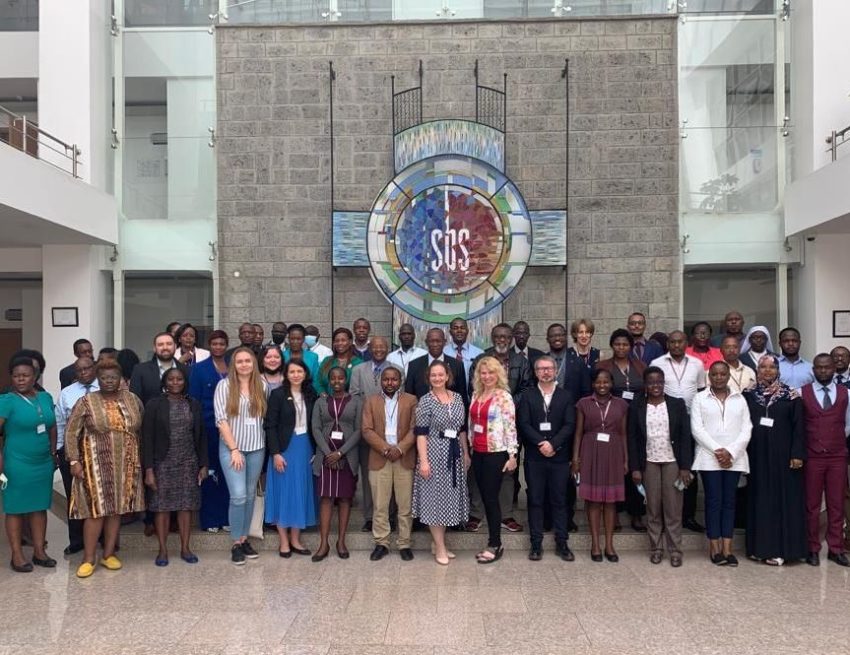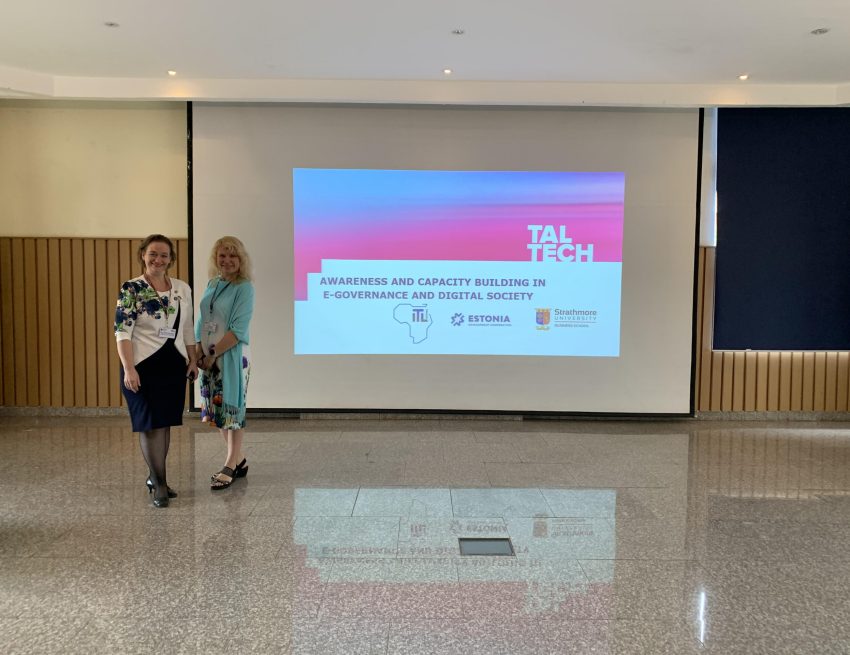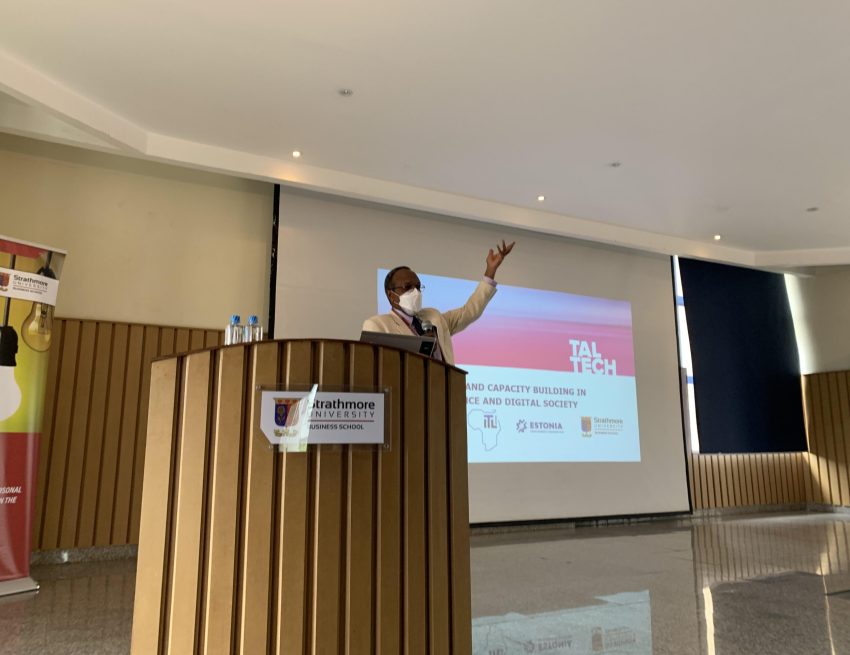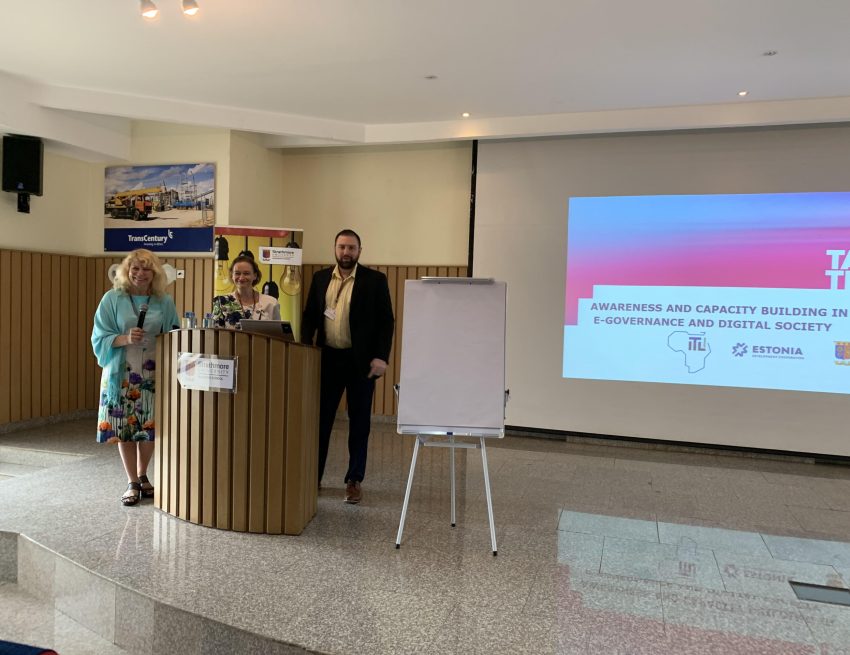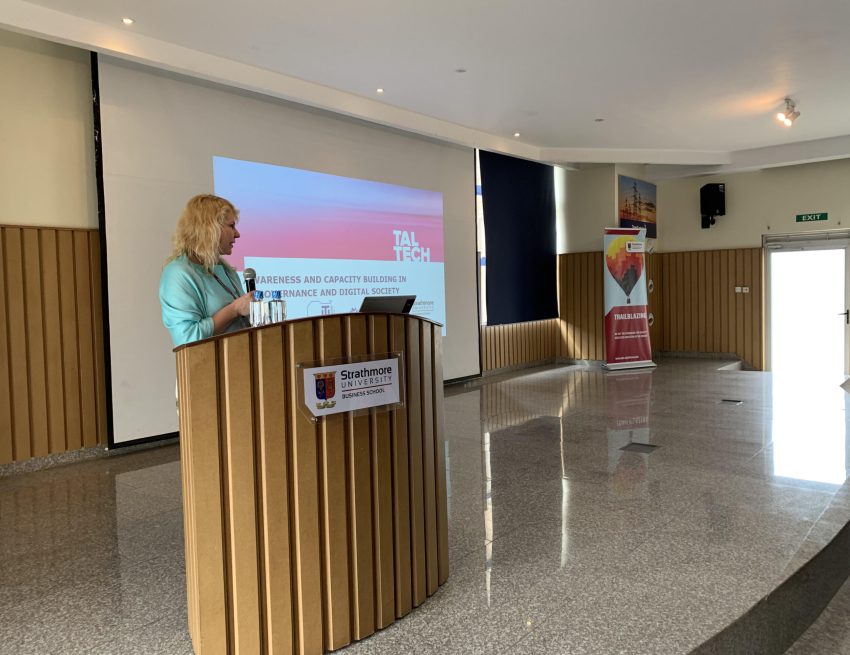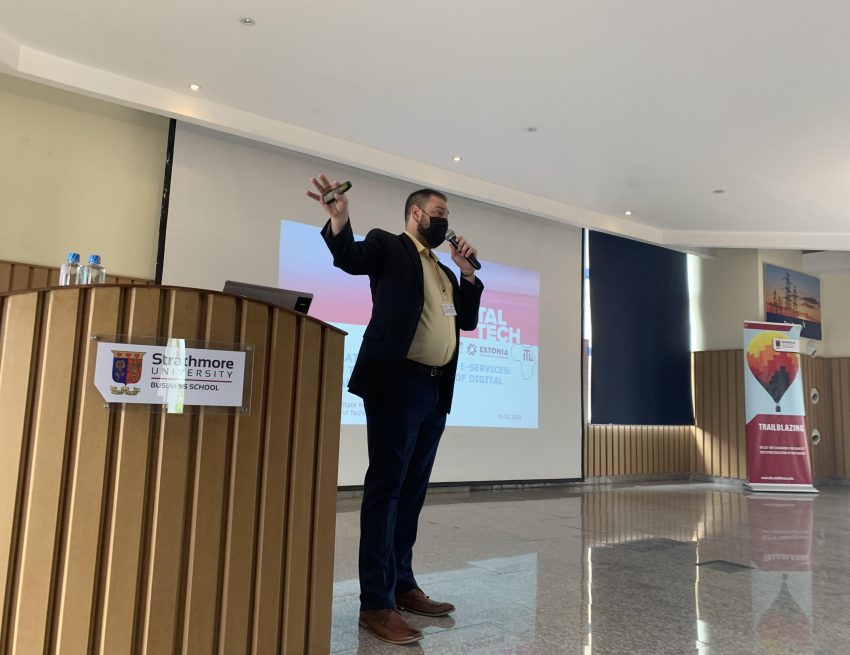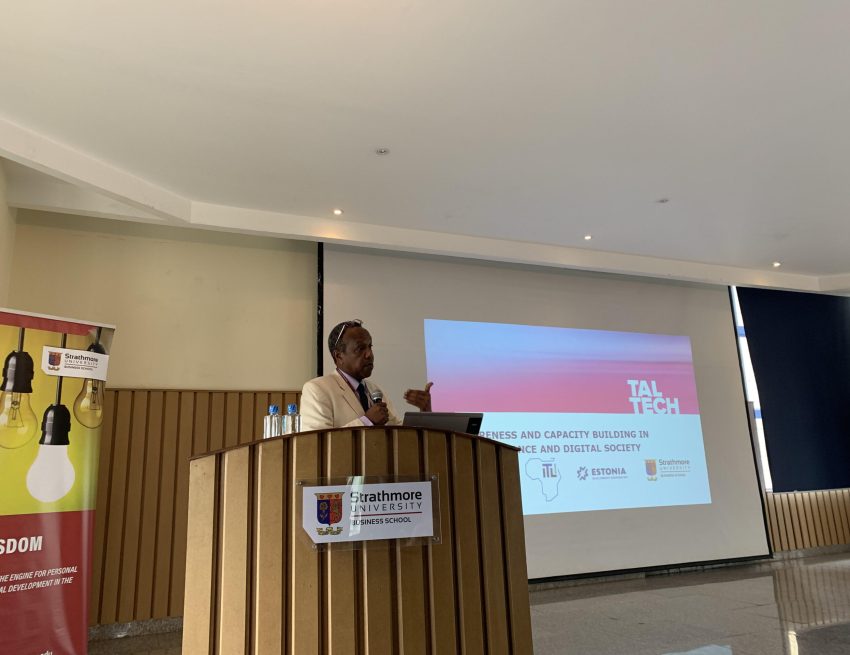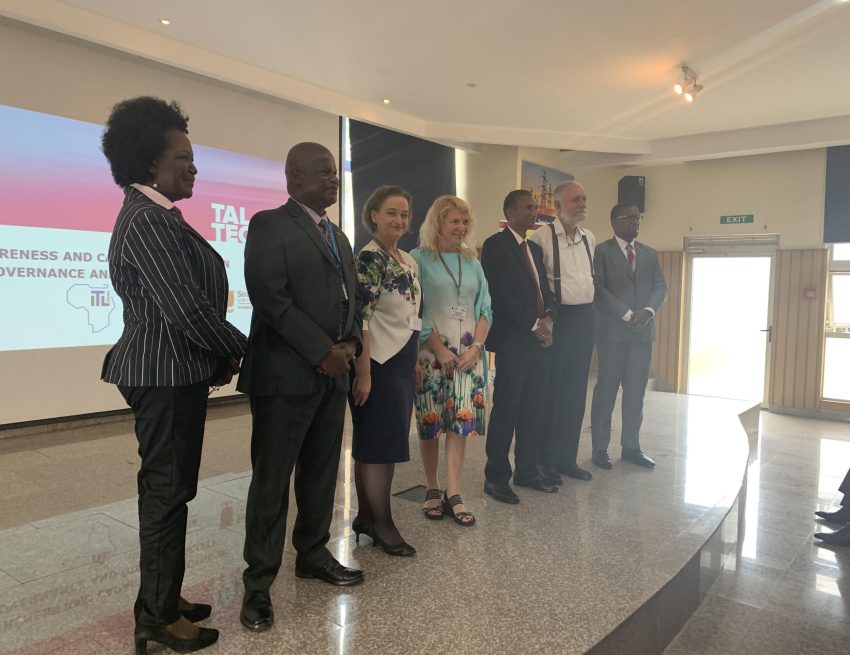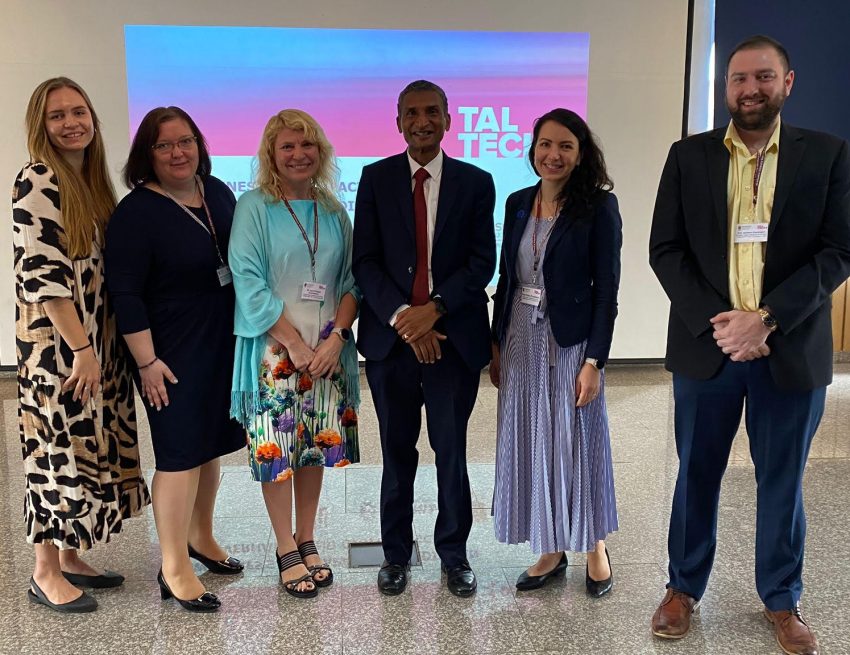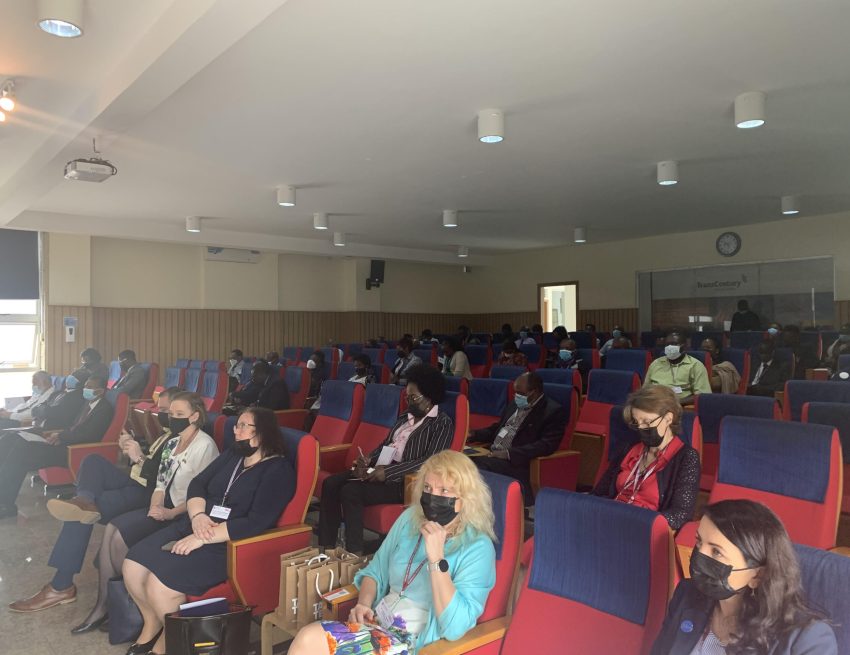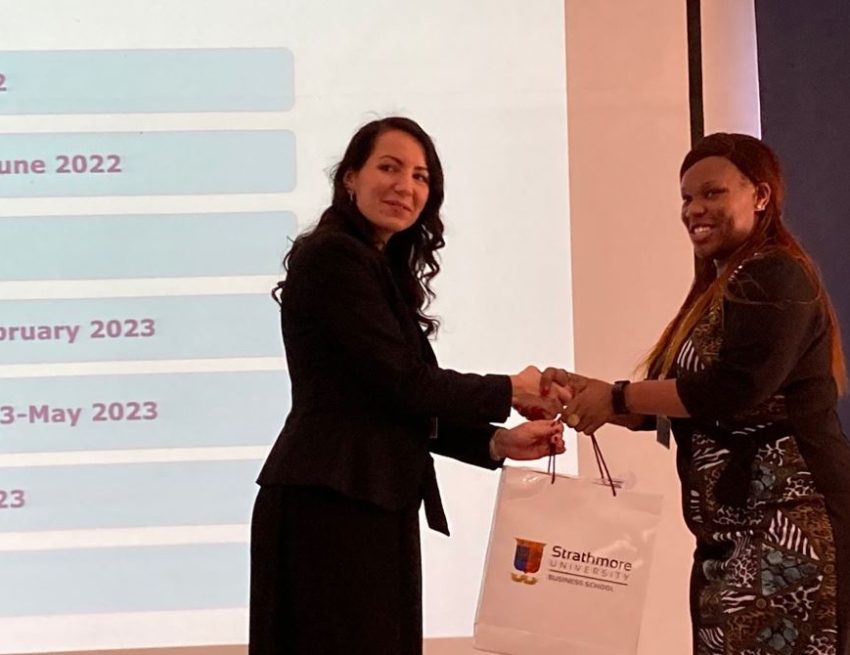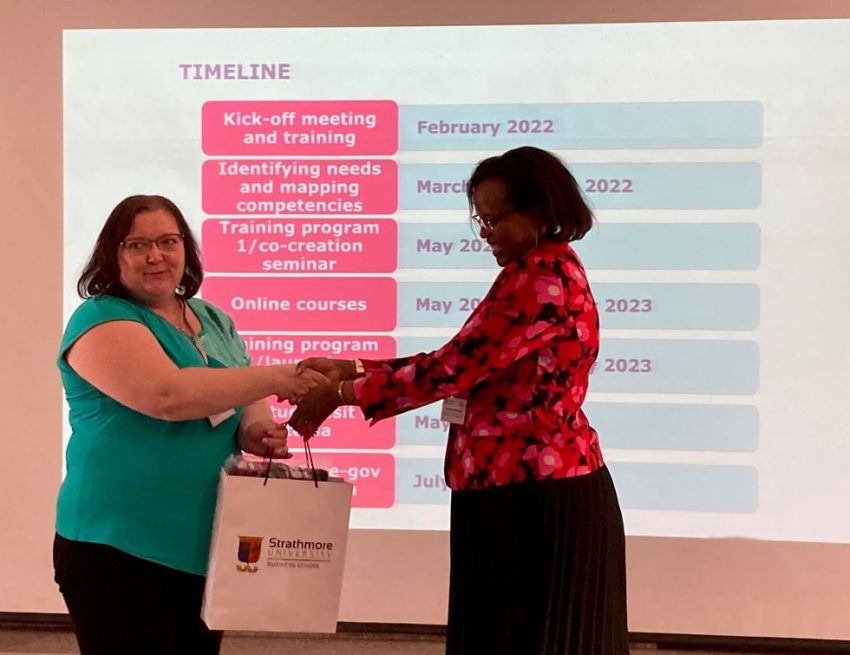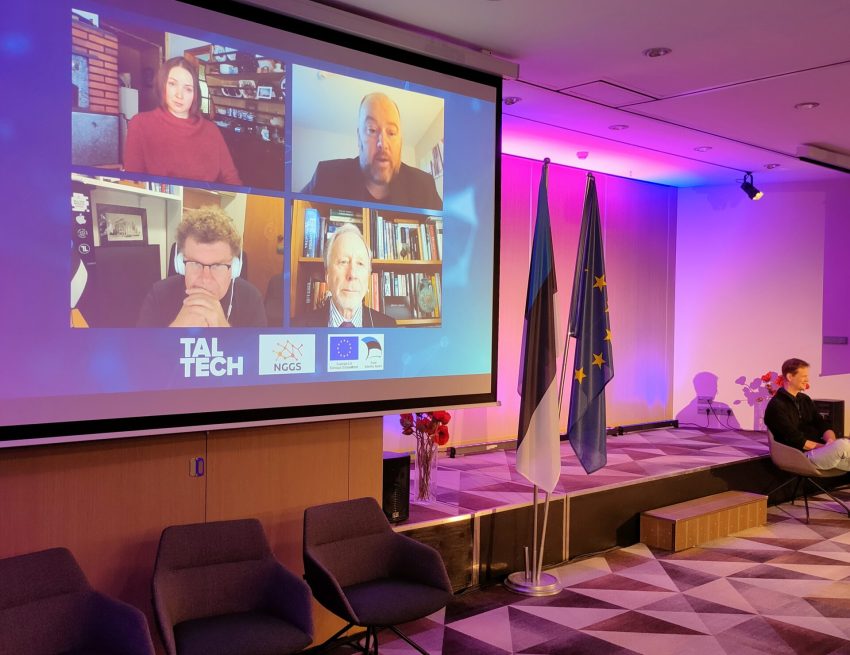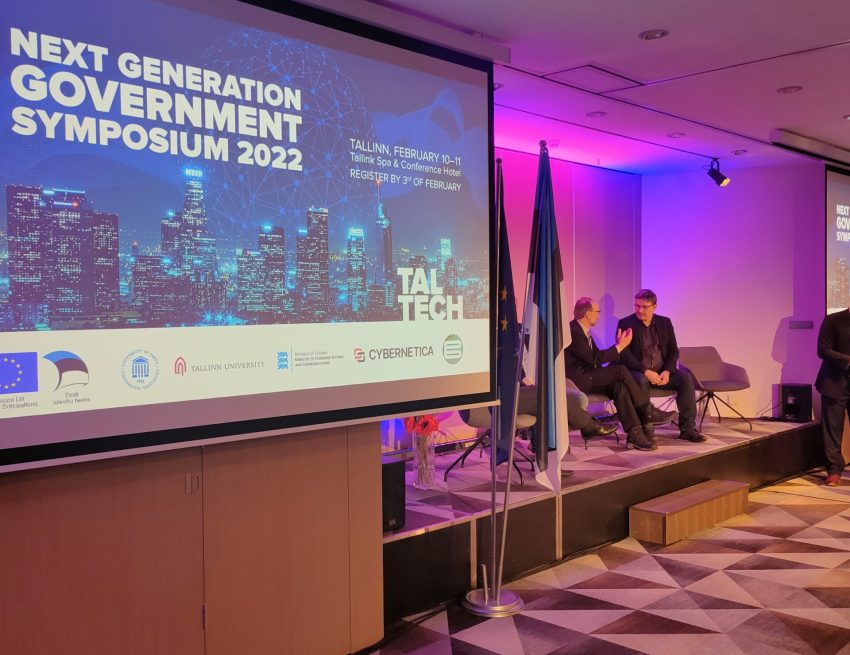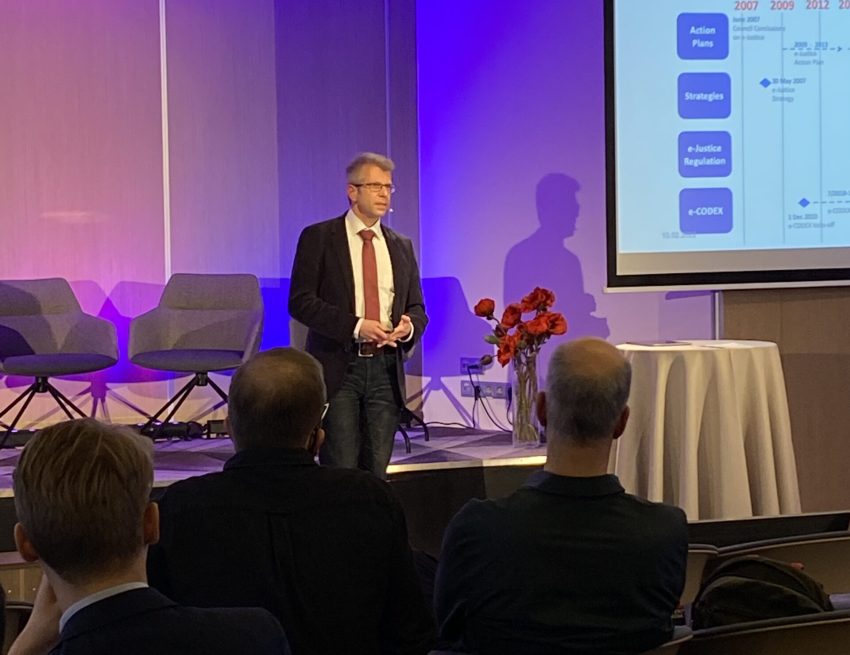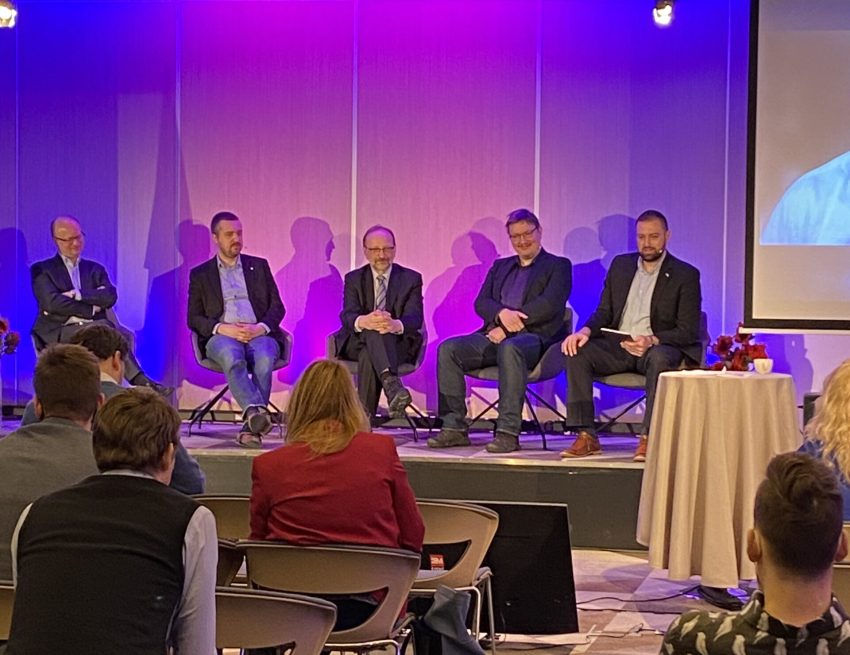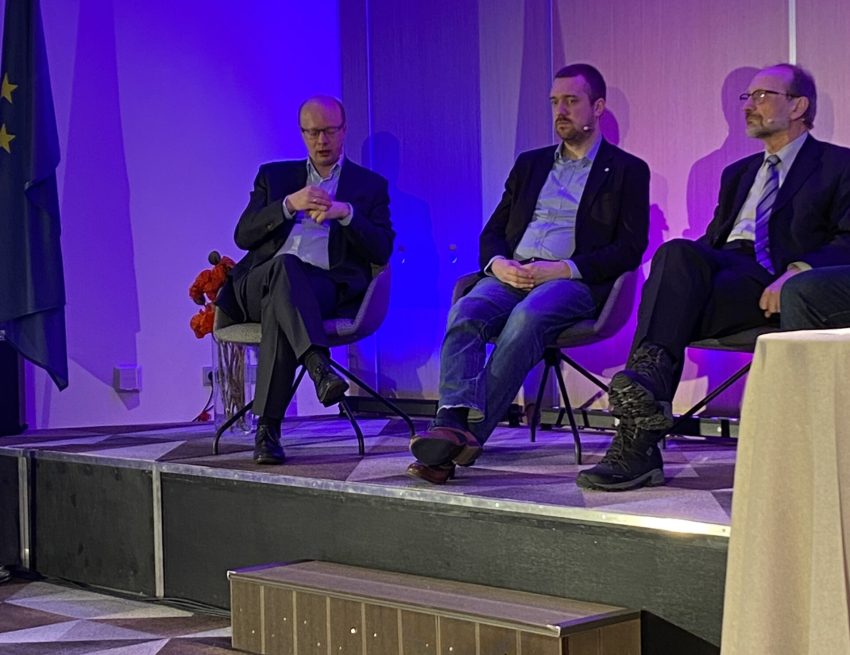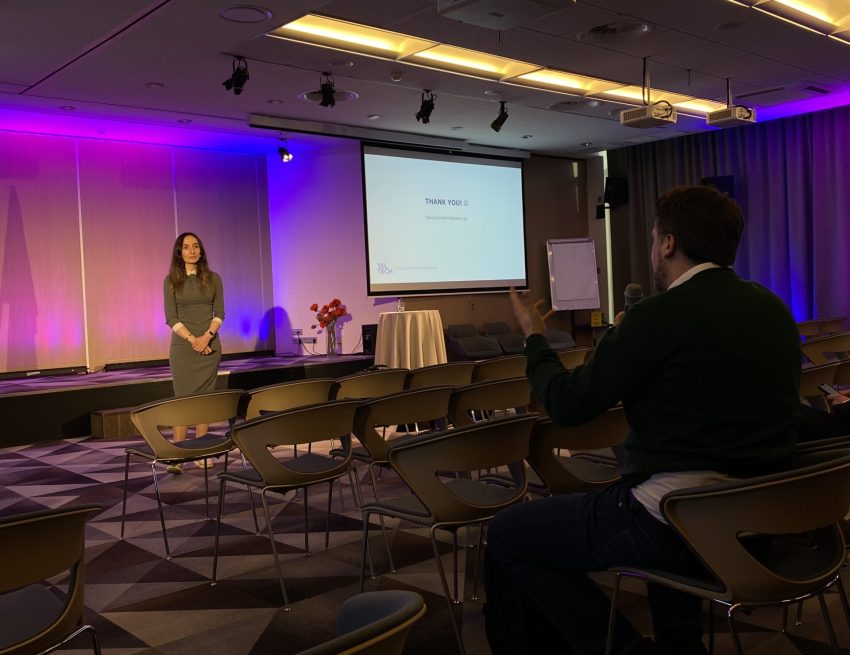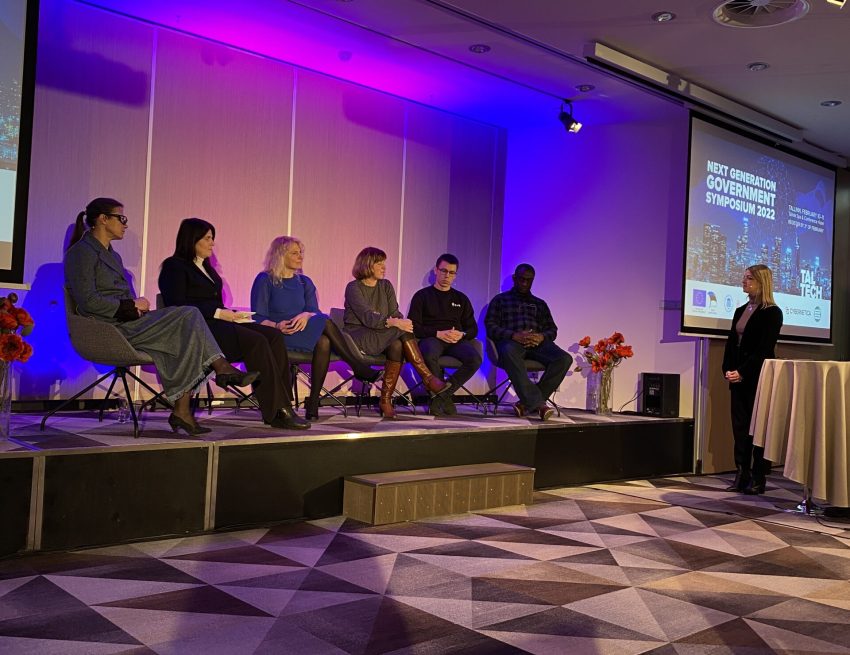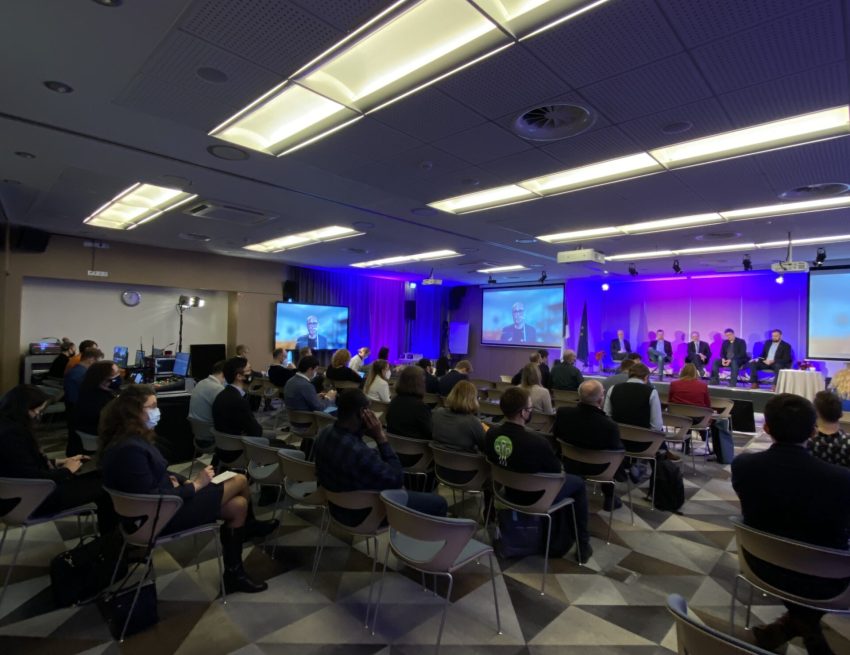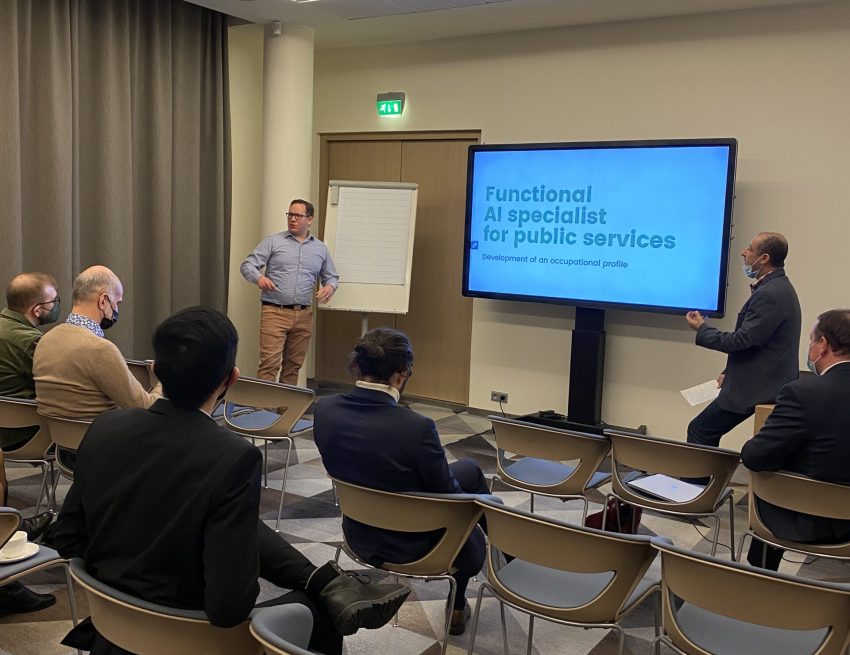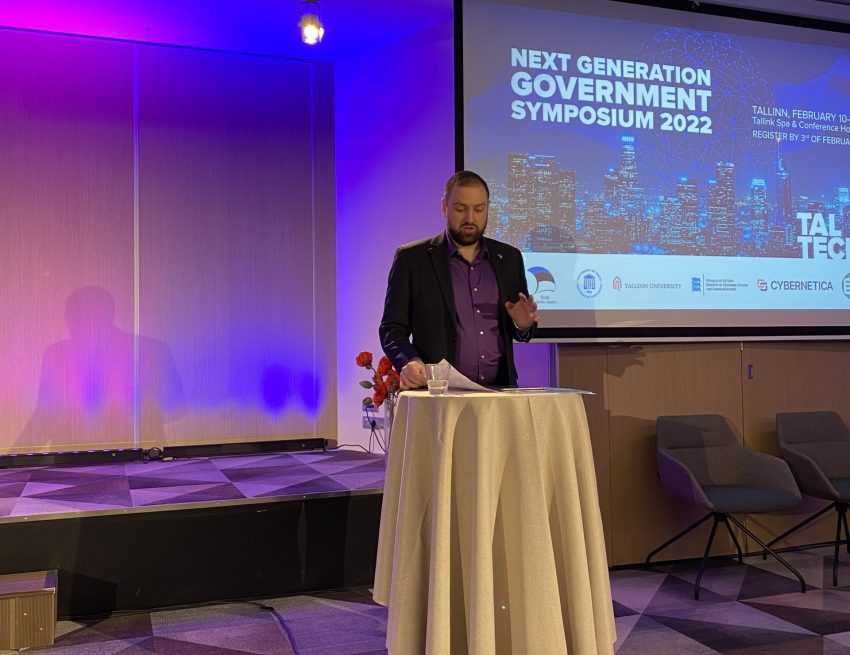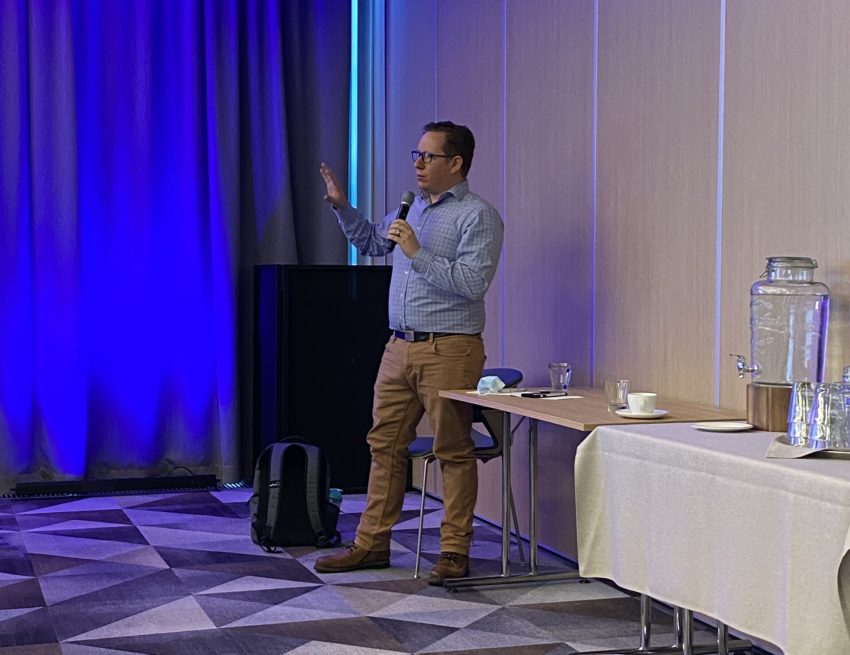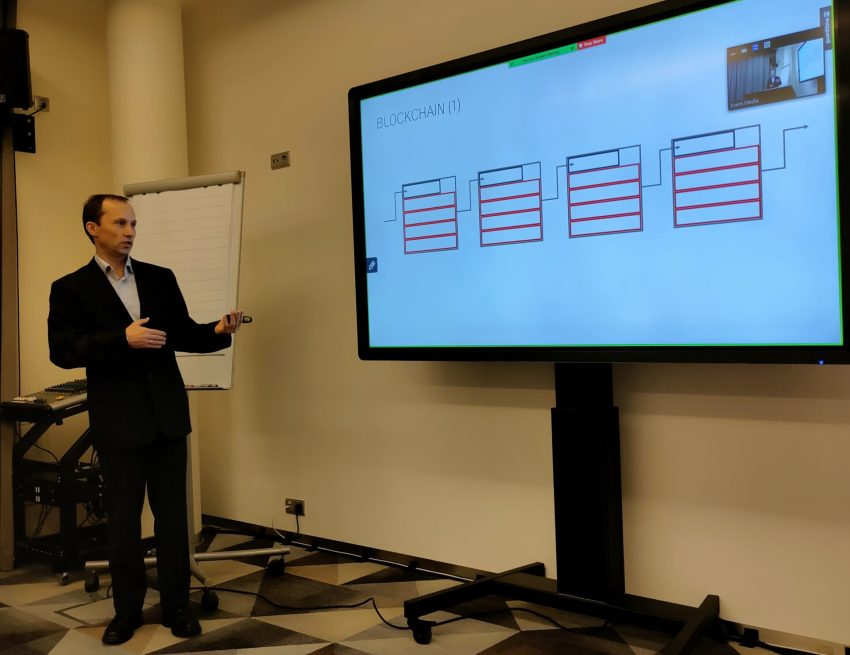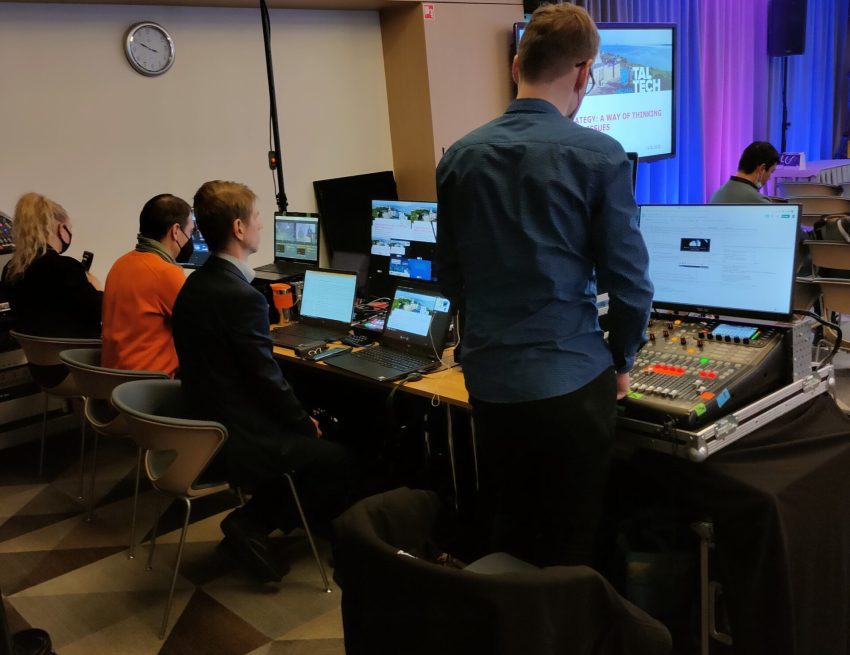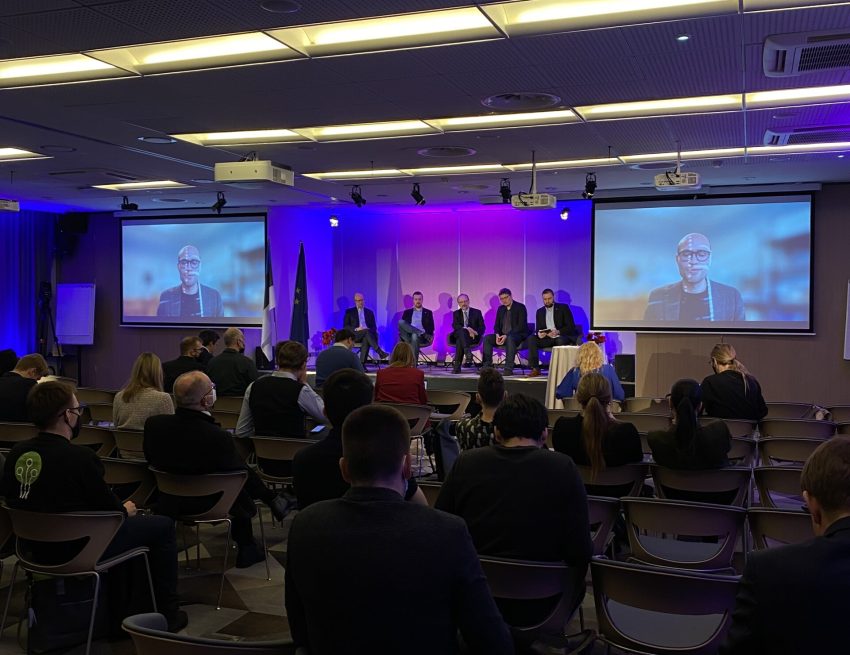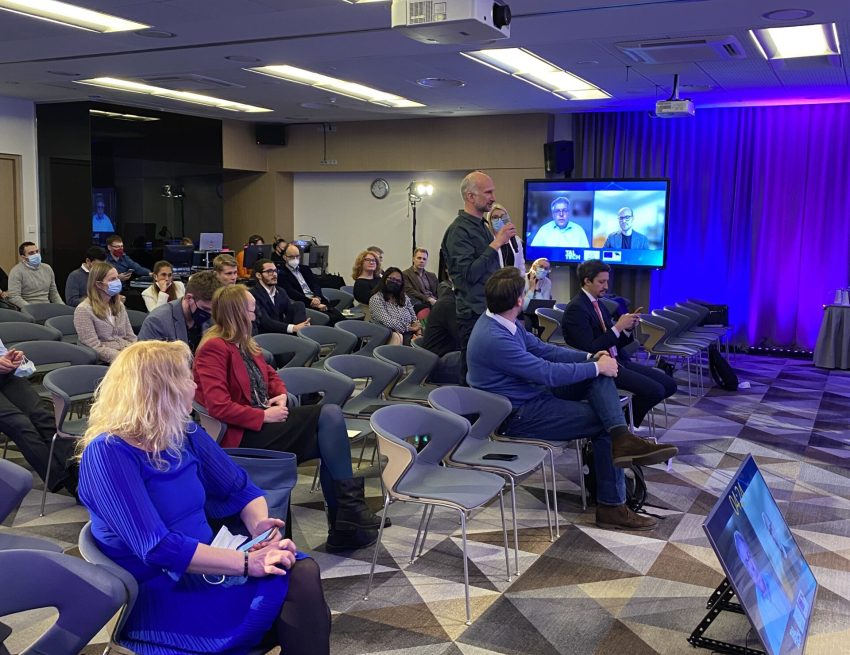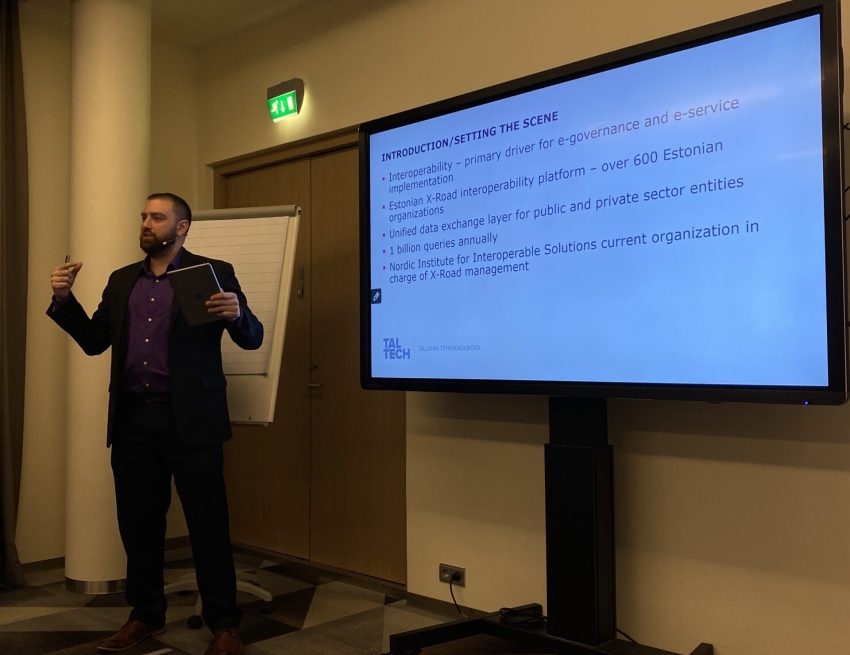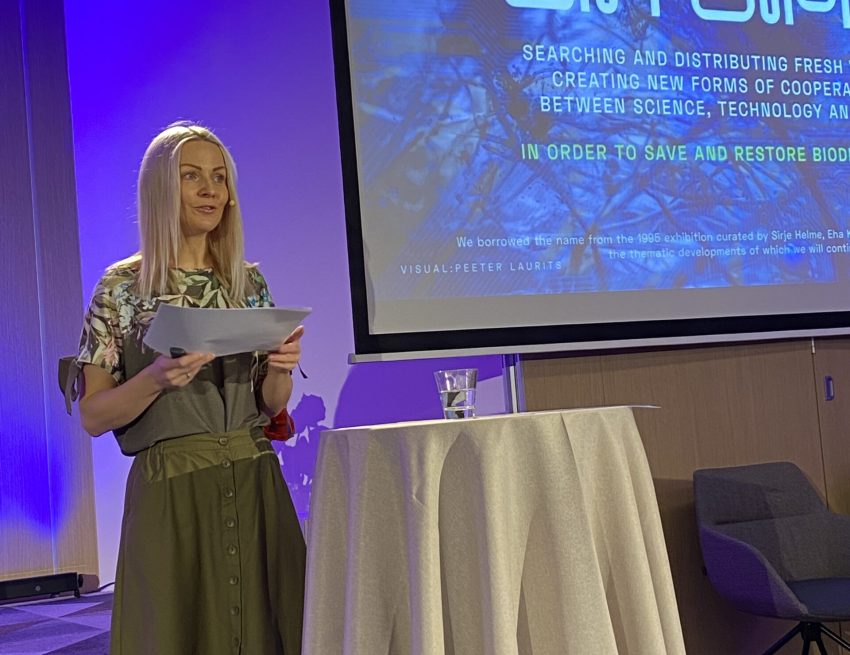Üritused
to Support Digital Society Popularization
ACADEMICS IN THE FRONT LINE OD E-gOVERNMENT PROBLEM-SOLVING

Next Generation Digital State Research Group at the Department of Software Science at TalTech is a fine example of cooperation. It creates synergies between academia and the public and private sectors. According to Associate Professor Ingrid Pappel, the head of the Research Group, their main aim is to bring cutting-edge technology closer to people. This includes people who use it and implement technological solutions in the public sector. But how do they do it?
Connecting students to real-life problems
NextGen research group started alongside the creation of the e-governance MSc program in 2013. This program educates students with a lot of potential and seeks to engage them in solving urgent problems outside academia. Since then, both MA and PhD students have been engaged with cooperative projects with which the leading NextGen group scientists are engaged.
An example of engaging students is the Future of Digital State Hackathon, organised jointly by NextGen Research Group and the Ministry of Economic Affairs and Communications (MKM) in October 2023. During two days, students will be able to tackle challenges and problems posed by the Ministry, present the solutions and win prizes. Topics include using voice or gesture commands, AI and blockchain to improve digital public services. The difference between a similar event in the private sector is that Estonian ministries will actually implement winning solutions.
MKM is only one of the public sector organisations that hurl challenges towards the research group. Similarly, The Innovation Team at the Government Office and RIA have been engaged in collaborative projects. With RIA, for example, the NextGen group studied the management of digital identities when EIDAS was implemented in Estonia.
Both short-term and long-term engagement of students in public sector-oriented research has proven extremely fruitful. Many former students are now employed by the public sector in Estonia and help to improve collaboration further.
Benefitting all sectors of society
The NextGen Research Group’s strength is engaging with the public sector. This creates a threefold connection between academia, the public and the private sector. One of the visible manifestations of such cooperation is the Eurora project. Triggered by the 2019 EU regulation that established the procedure for the transmission of VAT return data, Eurora Solutions OÜ wanted to take action. The company aimed to create a solution that would automatically help e-commerce providers calculate the amount of tax at the time of the purchase.
The goal was ambitious: to create a service platform software with wide-ranging benefits. The intended beneficiaries included e-commerce platforms, the EU and its member states, international couriers, logistic companies, tax administrators, and customs boards. The most difficult part of the project was to create a machine-learning algorithm that could determine the correct commodity code based on the description of the goods.
“It became clear very quickly that these calculations cannot be solved without the help of data scientists,” said Kaie Hansson, Innovation Manager of Eurora Solutions OÜ.
The cooperation with the NextGen group proved fruitful for both partners. During thousands of development hours, the data scientists created the core machinery to detect the commodity codes based on the product description. For Eurora Solutions, this resulted in the end product that numerous clients already use. For students and scientists, the process has produced several scientific articles and master’s theses.
Providing competence domestically and abroad
This three-dimensional cooperation has turned the NextGen group into a hub of knowledge extensively used domestically and internationally.
In Estonia, the group is one of the organisers of the Next Generation Government Symposium (NGGS) that brings together stakeholders from academia, government and the private sector to understand better next-generation government issues from interdisciplinary perspectives in technology, education, government, and law.
In cooperation with eGA, the NextGen group provides educational programs for CIOs abroad. It has also launched e-governance curriculums in Ukraine and Kenya. In Kenya, local academics are about to open a micro-degree program (an intense 1-year program) in digital governance in collaboration with the NextGen group.
“In all of our activities, we aim to benefit from and encourage interdisciplinary thinking,” says Ingrid Pappel. “We see that this kind of integration is increasingly valued and useful, and we as academics need to provide examples of how actually to do it.”
proposal writing workshop and networking meeting in Italy with Salerno university
3.-10.10.2022
The Nextgen Research Group ja Data Science Research Group met with the University of Salerno in Italy to conduct a two-day workshop on research proposal writing and best practices for their professors and PhD students, as well as find new collaboration and research partners from Italy. The workshop was facilitated by Kristel Toom who is focusing on her work at Taltech to coordinate various research projects. She introduced the important steps of proposal writing and the various possibilities for funding. At the second part of the meeting we spent on presenting both Taltech and Salerno university research areas and discussing how to bridge together the two institutions for possible future collaborations. Moreover sharing developments in digital transformation, data analytics, computer science and blockchain technologies which are common research topics in both universities.
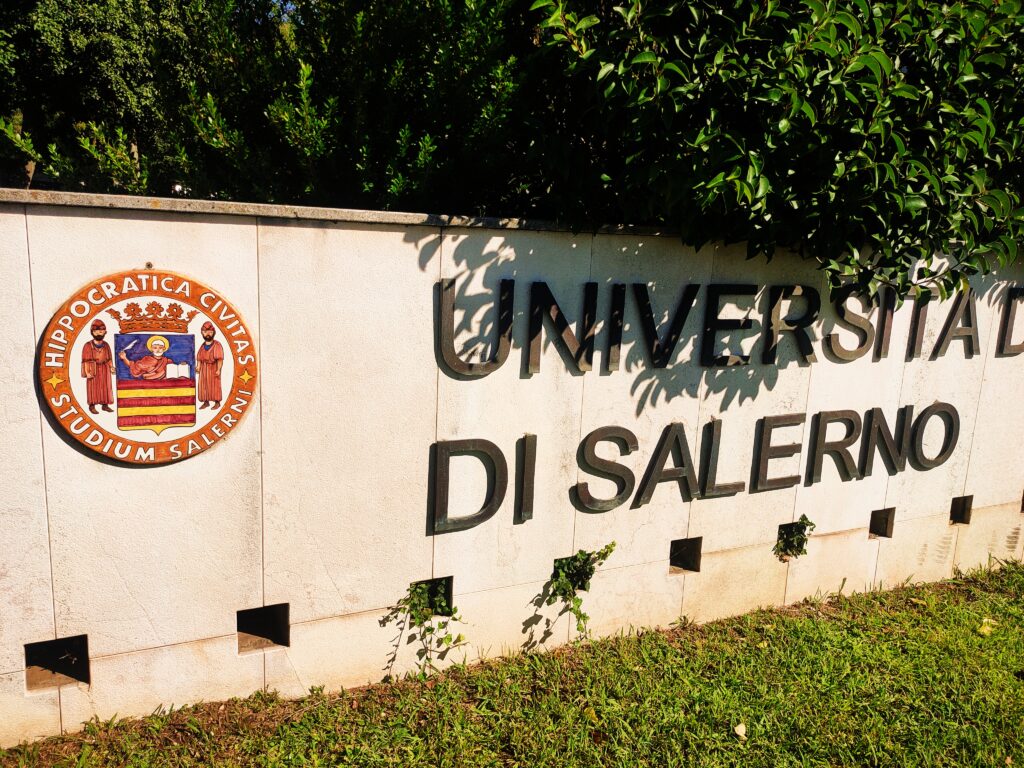
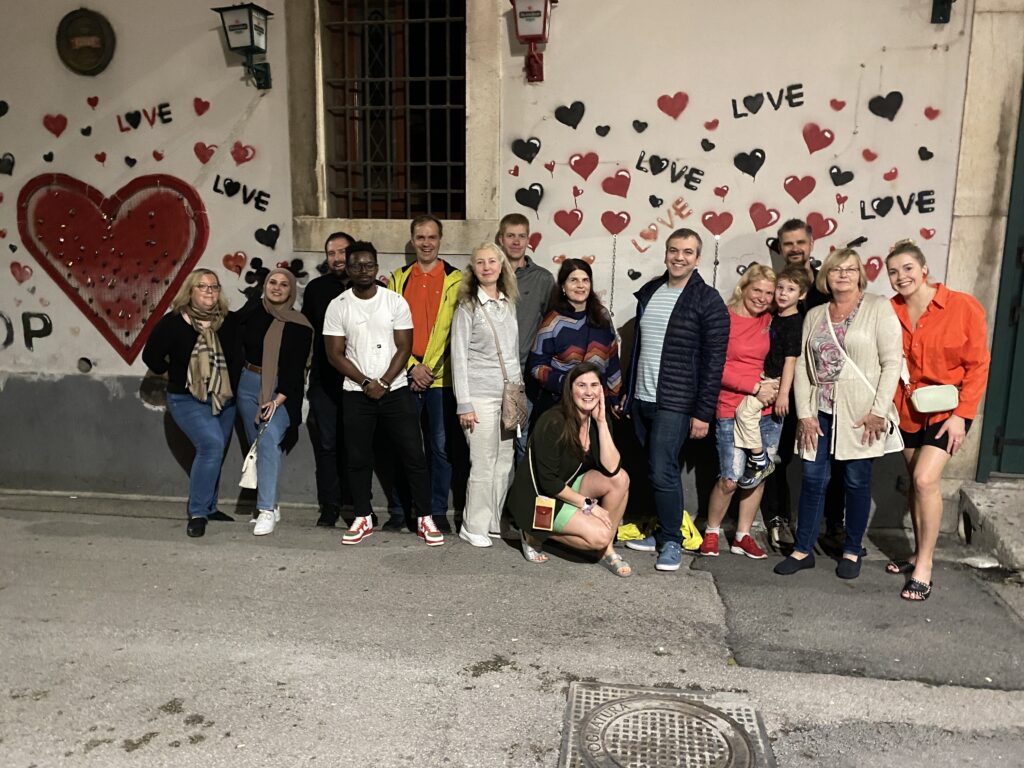
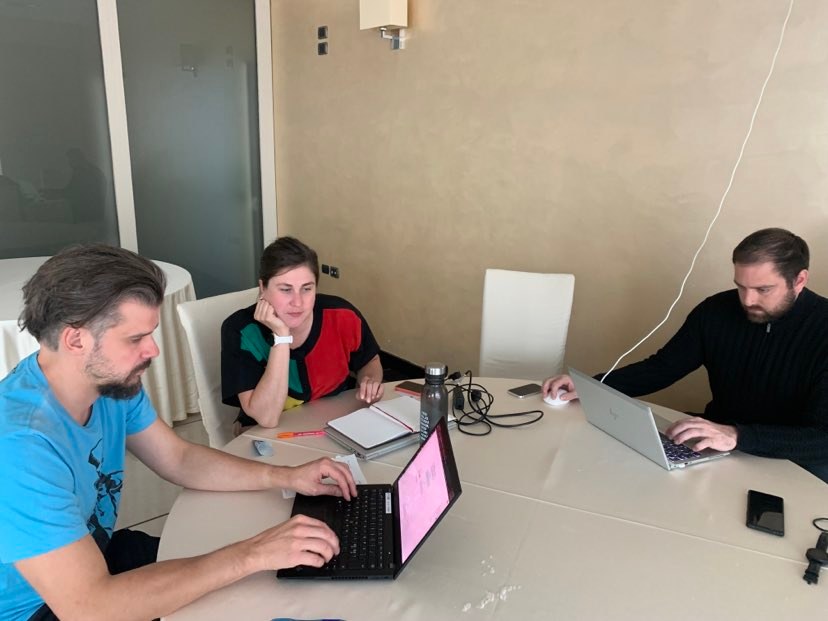
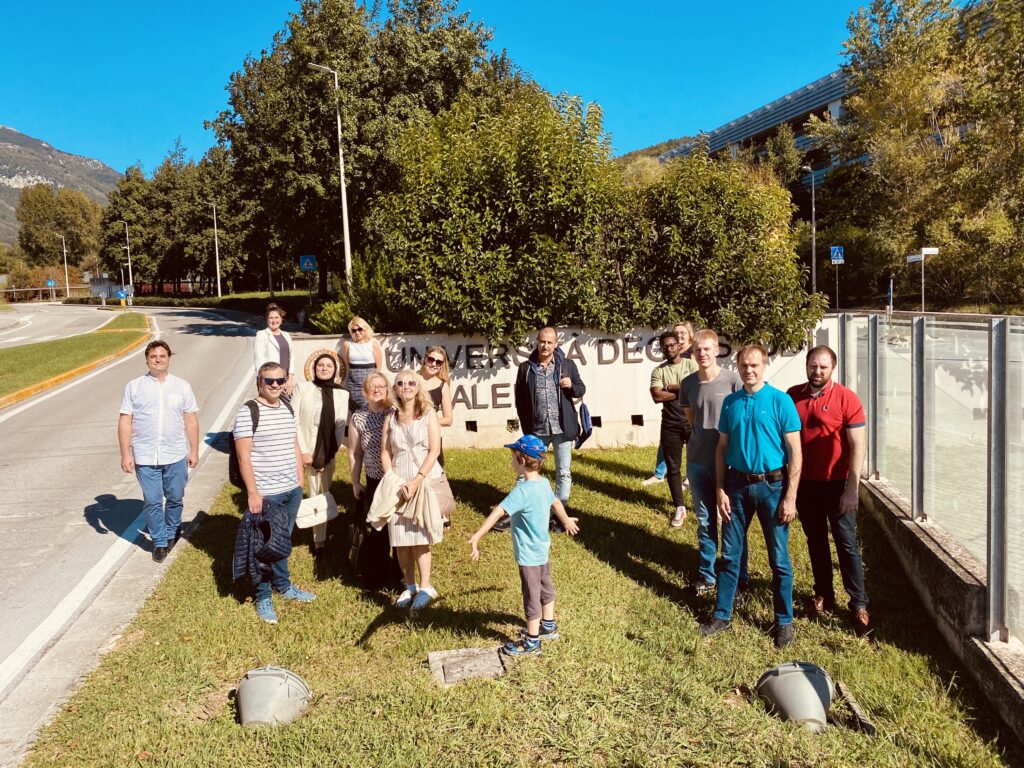
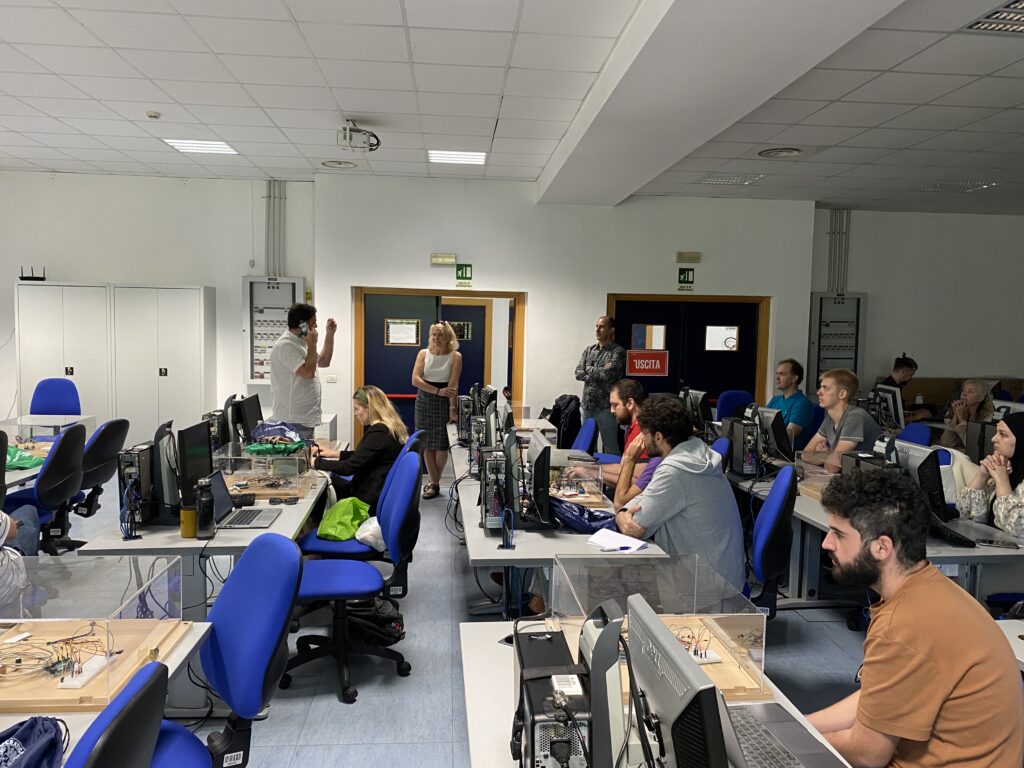
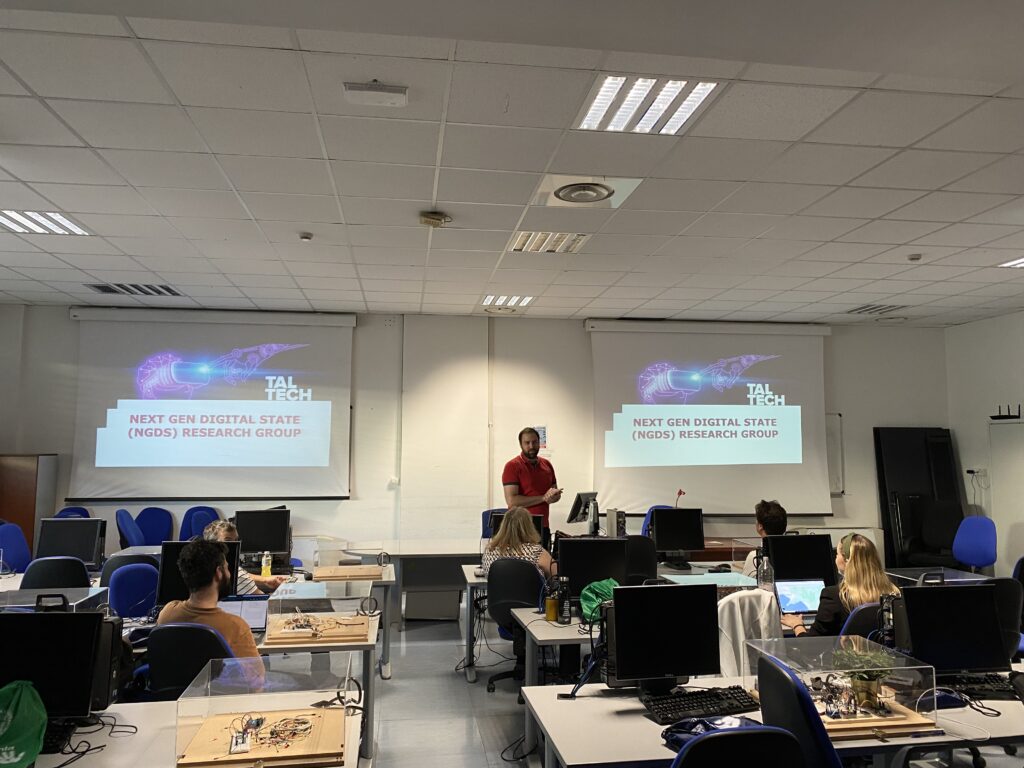
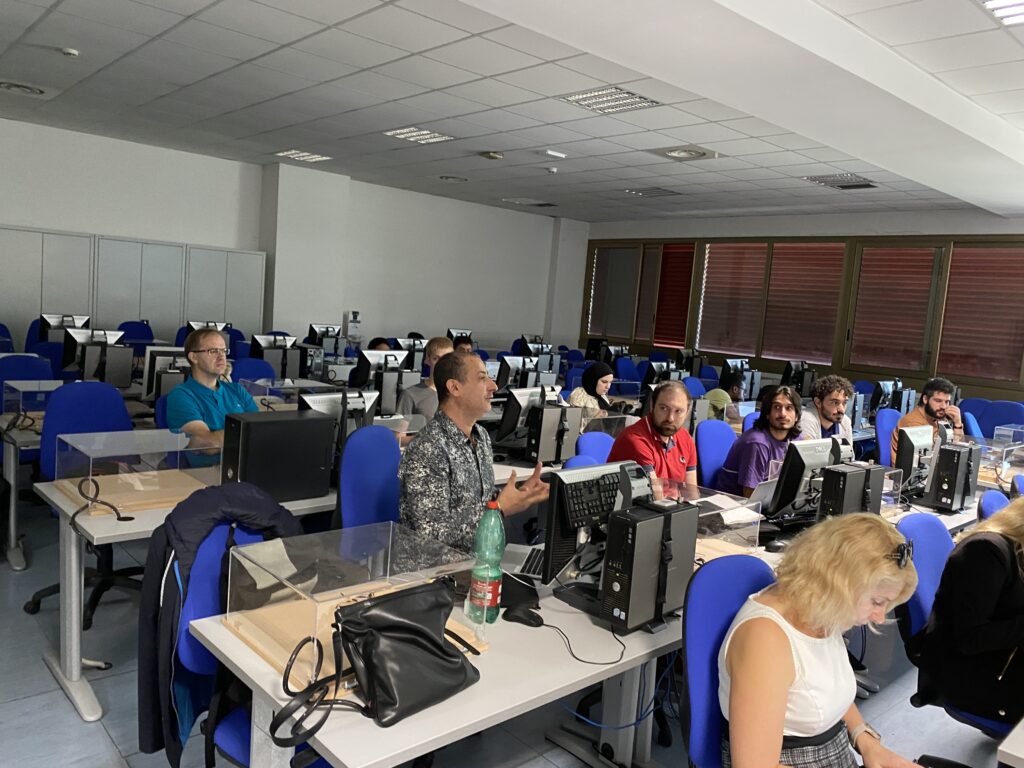
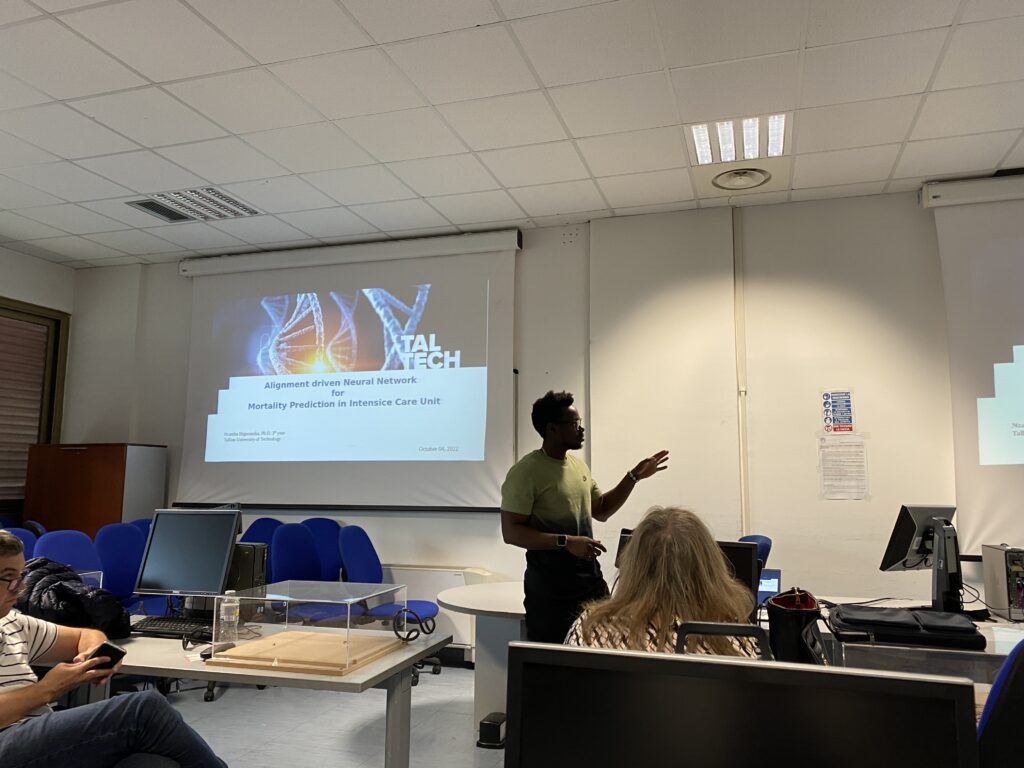
IT Faculty Year and Recognitions 2021
Today, the School of IT gave the year 2021 recognitions to our amazing researchers and dear colleagues. We have so much to celebrate! From our own research group, Ingrid Pappel got an award for being the researcher of the year and for being a co-author for the research article of the year. Last year she was the author or co-author for more than 12 articles and supervised 5 master’s theses. Regina Erlenheim, who is warmly loved by our students for her constructive criticism, always positive and open-minded approach, was recognized as the lecturer of the year! Her course “Public service design and implementation” is one of the best courses in our program and good for master thesis preparation in a sense to start thinking outside of the box. We are beyond happy to have such amazing women in our NextGen research group and hopefully we will continue on the same brilliant level in the upcoming years! (Read more)
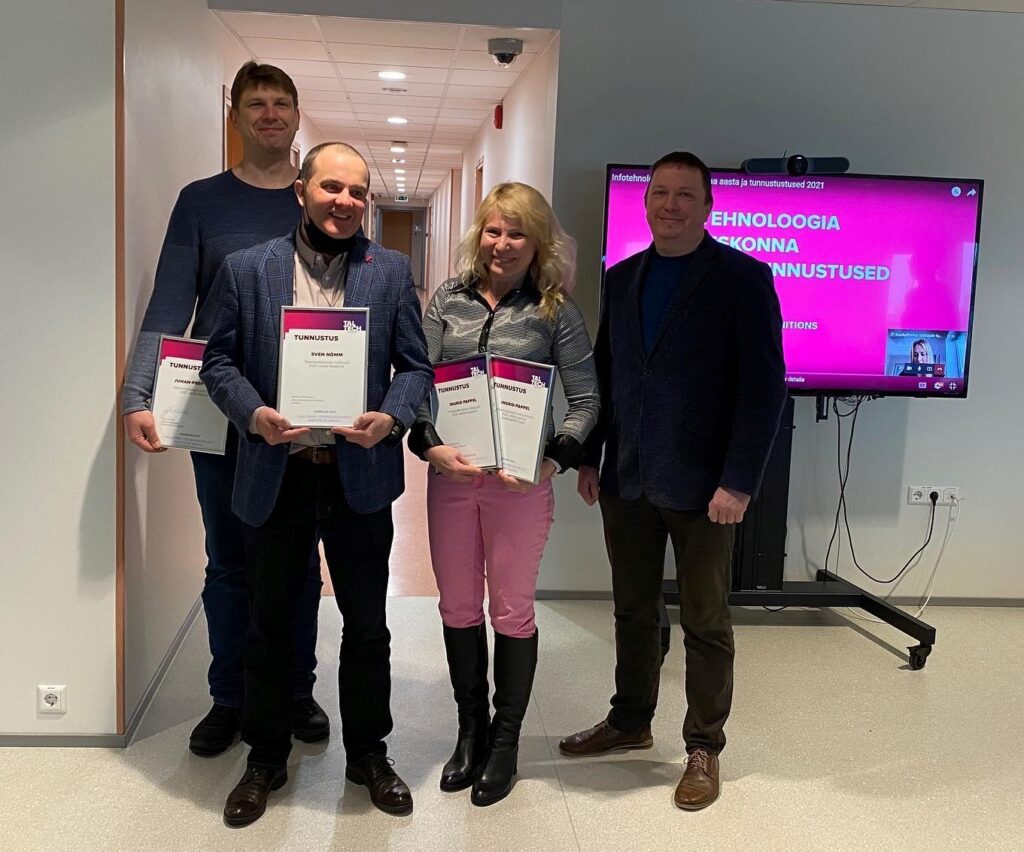

eGov training at Strathmore Business School (SBS) in Kenya
The Government of Estonia through Tallinn University of Technology (TalTech) has signed a memorandum of cooperation with Strathmore Business School, whose overarching objective is to promote new international partnership on digital transformation in Africa. (Read more)
Next Generation Government Symposium 2022
Conference “JÄRGMISE PÕLVKONNA DIGIRIIGI SÜMPOOSION” (NGGS) brought together stakeholders from academia, government and the private sector in a symposium format to better understand next generation government issues from interdisciplinary perspectives in technology, education, government, and law at the Tallink Spa & Conference Hotel (Read more)

